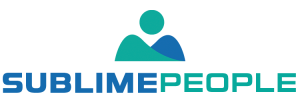Are you about to embark on a challenging panel interview for your dream job? Or do you want to be one step ahead and brush up on best practices before appearing in front of potential employers? Either way, you must prepare to make an outstanding impression. That’s why we’ve devised ten tried-and-true tips and strategies so that you can ace the interview wherever the conversation takes you. With these key steps, we guarantee your success! Read on for more information, and start prepping now.
In this Article:
What is a panel interview?
A panel interview is a job interview in which a panel of 6–12 panel members. These include hiring managers, human resources representatives, and other decision-makers in a senior position, asking questions to determine if a person is a right fit for the job.
Panel interviews allow hiring teams to question you about your qualifications, aspirations, and background from various perspectives. There are a few primary explanations why personnel departments prefer this type of interview:
- Convenience: The hiring process can be streamlined for all parties involved when organizations opt to conduct a panel interview instead of scheduling multiple individual interviews. This approach allows candidates to meet with several decision-makers in one sitting, ensuring that the selection process is both convenient and efficient.
- Challenge: Panel interviews require job seekers to think on their feet, answer questions from multiple panel members, and keep up with the conversation. Participants must be able to speak confidently and persuasively—especially when panelists ask unexpected follow-up questions.
- Objectivity: By having a panel of individuals review job candidates, organizations can gather more balanced feedback and form a more objective hiring decision.
- Teamwork: Panel interviews create group dynamics, allowing panel members to assess how well a candidate can work with multiple people in different departments.
Here are 10 tips on how to prepare for and succeed in a panel interview
Panel interviews can seem intimidating, but with the right preparation and confidence, it doesn’t have to be. During your job search, use the following tips and understand what goes into a successful “panel style” interview.
1. Research and prepare for a panel
Like one on one interview, panel interviews require you to prepare for the panelists and their roles within the company. Research each panel member, including job titles and past accomplishments. By familiarizing yourself with all the panel members, you can make a strong impression and increase the likelihood of being offered the job.
Investing time to get to know the whole panel before the panel job interview is an invaluable step in building trust and confidence. Gather as much information as possible about them—their interests, values, goals—so that you can demonstrate how your skillset meets their needs in this position. Prepare for a panel find the names of panel members and job titles in advance, so you can use them and adequately address them during the panel interview.
2. Practice your answers
Prepare and practice responses to commonly asked panel interview questions. Develop answers based on your past accomplishments demonstrating how you can handle the panel’s expectations in this role.
Panel interviews provide panel members with the chance to ask multiple follow-up questions. Prepare for panel interview questions by studying key details about the company, its culture, and the position you are applying for. Anticipate what questions they might ask during panel interview format and practice your answers.
3. Prepare enough copies of your documents for the entire panel
When attending an interview, you must present your resume and other relevant material, such as work samples. To be a successful candidate in the selection process, you should bring copies of these documents with you for each panel member. Therefore, having enough copies of your resume, cover letter and other documents for panel members is essential. This allows panellists to review your information and ask questions about it during the panel interview.
4. Maintain eye contact with panel members
Eye contact is a sign of engagement and respect and can help you create a strong impression on panelists. Therefore, make direct eye contact when speaking with panel members or answering their questions. Even if you feel overwhelmed by multiple panel members, try your best to make eye contact with panel members. Remember to address panelists by their titles, and speak clearly and confidently.
5. Only answer the question asked by one panel member at a time
During panel interviews, panelists often ask multiple questions simultaneously. This can be overwhelming, so when answering panel members’ questions, focus on only one panel member at a time and answer their question before moving on to the next panel. It is important to focus on one interviewer and answer their questions. Failing to do so will not only leave panelists feeling confused, but could also make you appear distracted or unprepared.
6. Take notes and mind your body language
Taking notes is a great way to show panel members that you are listening carefully and paying attention. It is also important to remember your body language during panel interviews. Make sure that you sit up straight and maintain an open posture while answering panelists’ questions. Listen attentively, smile when appropriate, and don’t fidget with your hands or feet – panelists will appreciate your professionalism.
7. Study key details about the company
In panel interviews, panel members may ask questions about the company’s culture, products, services, and goals. Make sure to thoroughly research the company before attending the panel interview so that you can answer any questions panelists may have. This can also help you understand the panel’s motivations and expectations, and provide insight into how panel members might respond to your answers.
8. Show enthusiasm for the job
Showing enthusiasm for the position is a great way to make a positive impression on panel members. Demonstrate your passion and interest in the job by talking about why you want to work for the company and what you could bring to the role.
9. Follow up questions with panel members
Follow-up questions are an important part of panel interviews as they provide panelists with a better understanding of your experience and qualifications. Follow-up questions also help establish trust between panelists and job candidates, as panelists may be more willing to discuss a candidate’s qualifications and experience if they feel comfortable asking questions.
10. Thank panel members for their time
Thanking panel members for their time is an important part of panel interviews and can help you make a strong impression on panelists. A simple thank-you note or email after the panel interview will show panel members that you appreciate their time and respect their decision-making process.
Does a panel interview mean you got the job?
Panel interviews can be intimidating and are known as one of the more serious types of interviews. But surprisingly, even if you do find yourself in a panel interview scenario, it doesn’t necessarily mean that you have the job. Many panel interviews are used to identify the strongest candidate from a pool of applicants, so employers can combine the assessments from multiple people to make the best decision for them. While panel interviews can signify that you are further along in the hiring process than other candidates, wait to begin celebrating until you’ve heard an official offer.
What is usually asked in a panel interview?
Panel interviews are typically used to assess a candidate’s knowledge, skills, and experience. panel interviewers may ask questions about your past experiences, goals, qualifications, and ability to work in a team environment. They may also ask questions regarding the company’s culture and current initiatives. Questions may be asked by multiple panel members or just one panel member, depending on the panel size and format. panel interviews may also include follow-up questions and discussions to better understand a candidate’s answers.
To succeed in a panel interview, it is important to be prepared with detailed answers to the panel’s questions, maintain eye contact with all panel members throughout the interview, and express enthusiasm for the job and company. panel interviews can be intimidating, but with preparation and practice, you can feel confident in your ability to answer panel members’ questions and stand out from other candidates.
Example questions and answers include;
Tell us about yourself.
When responding to this question, illustrate how your skills and experience make you the perfect choice for the job. Start by providing a brief overview of where you are in your career right now before discussing your past accomplishments and future ambitions. This will demonstrate that you have what it takes to succeed in this role!
Example: “I have been working in marketing for the past 5 years and have most recently been promoted to a senior-level position. During my time in this field, I have helped many of our clients successfully increase sales and brand recognition through effective campaigns. My overall goal is to continue challenging myself by taking on new roles that allow me to grow professionally.”
What makes you a good fit for this role?
This is where you can showcase how your past experiences make you the ideal candidate for this job. Talk about specific skills, knowledge, and abilities that you have that are necessary to excel in this position. Please provide examples of success stories or major accomplishments in previous jobs.
Example: “In addition to my experience in marketing, I have also developed skills in customer service and problem-solving. In my current role, I successfully doubled our customer engagement rate by implementing a new customer feedback system that allowed us to understand our customers’ needs better. I aim to bring this same success to this role by utilizing my expertise in customer service and marketing.”
What would you do differently if faced with a similar challenge?
As panel interviews involve multiple decision-makers, panel members may be focused on determining how you would handle difficult situations that arise in their organization. When responding to this question, provide examples of how you have overcome challenges in the past and how you would handle them differently in a similar situation.
Example: “If faced with a similar challenge, I would take an analytical approach to problem-solving. This involves breaking down the task into smaller parts and identifying potential solutions for each component. Taking this approach allows me to understand better what went wrong and what can be done to prevent similar issues in the future.”
What is the most common mistake in panel interviews?
One of panel interviewees’ most common mistakes is not treating it as if it were a multiple-round interview. Rather, panel interviewees often walk into the room like they only have to answer one round of questions, forgetting that they will have to meet with different panel members and ensure that their answers are clear and concise each time. It’s important to ensure that all panel members leave with an accurate understanding of the candidate’s qualifications and skillset, which can be easily overlooked when panel members come away with varying perceptions of their answers.
Although many interviews include one-on-one conversations with the hiring manager, panel interviews feature multiple panel members, typically from different departments. This means that panel interviewees must take extra time to prepare for the interview by studying key details about each panel member and their respective job titles.
Conclusion
Panel interviews can be daunting, but if you go in prepared with a solid understanding of the company and your qualifications, you’ll be sure to make a great impression. Following these 10 tips will help ensure that you give yourself the best chance possible of impressing the panelists and getting the job. So don’t be discouraged by a panel interview – use it as an opportunity to show off your stuff.


